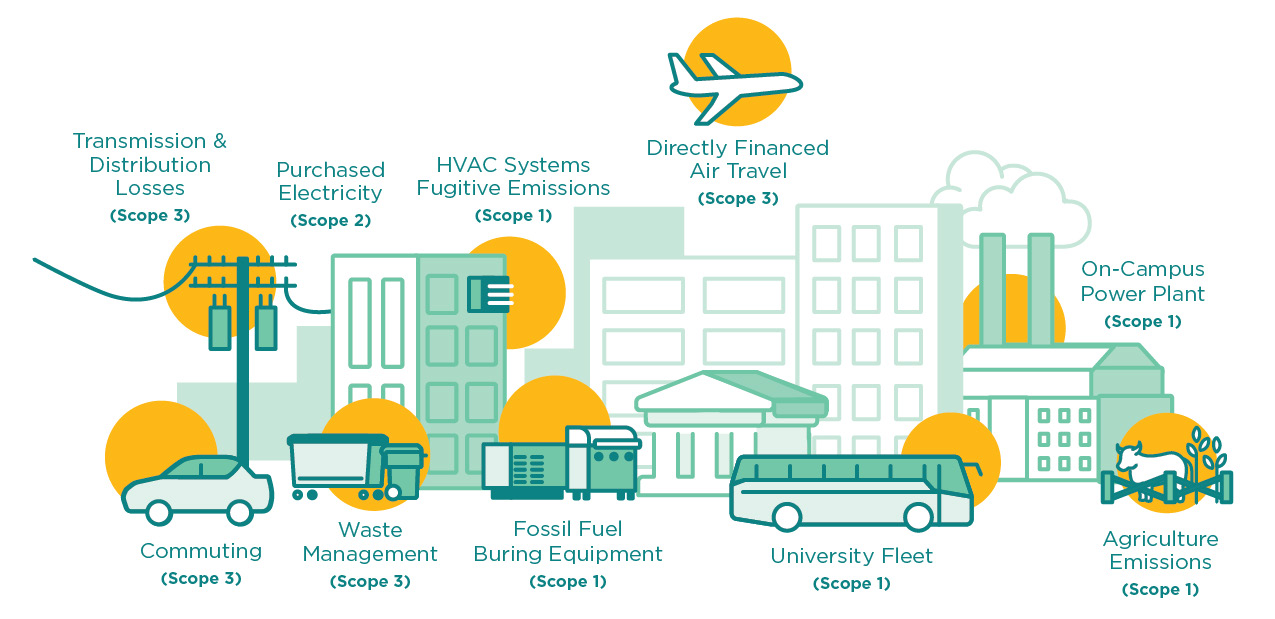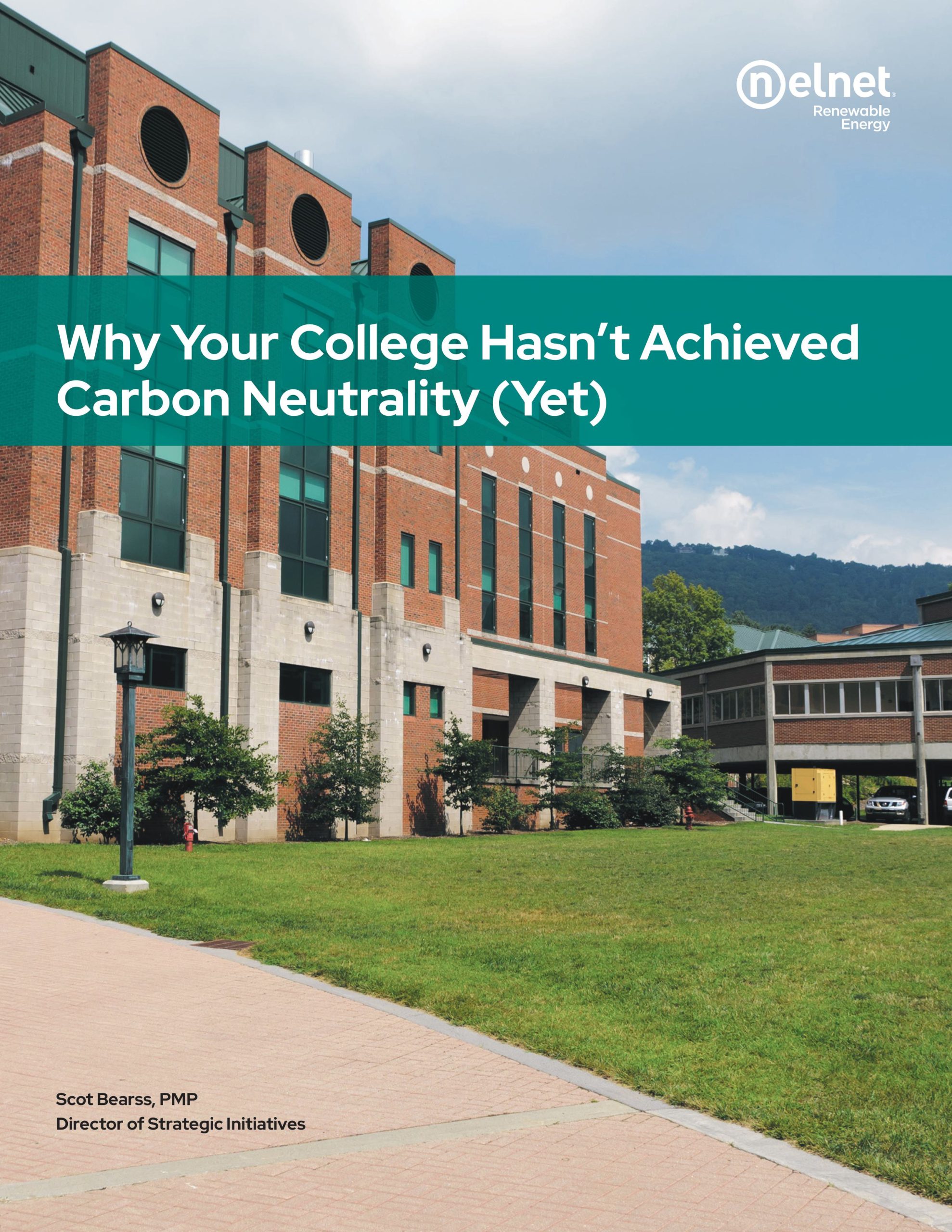Despite overwhelming scientific evidence that indicates a need for rapid decarbonization, there are currently only 15 higher education institutions in the U.S. that have achieved carbon neutrality; these institutions represent about 0.25% of all colleges and universities in the U.S. While only these precious few institutions have achieved carbon neutrality, hundreds more are working to reach that goal by 2050.
So, why isn’t your (former or current) college doing more to mitigate and adapt to the effects of climate change? For most institutions, the failure to achieve results is not for lack of trying. Legitimate hurdles stand in the way of rapid decarbonization, and great intentions can only take you so far while managing limited resources and external roadblocks.
Let’s explore what it takes for a higher education institution in the U.S. to achieve carbon neutrality; review key barriers to implementation; and provide strategies for how those barriers can be overcome.
First things first: What is carbon neutrality?
Carbon neutrality is not equivalent to zero carbon emissions. Carbon neutrality requires that any actions that lead to emissions would be accompanied by other actions that confidently reduce – or offset – emissions.
Carbon neutrality is often a catch-all term for achieving net zero greenhouse gas (GHG) emissions, expanding beyond carbon to include methane, nitrous oxide, and sulfur hexafluoride. For the purposes of this piece, carbon neutrality encompasses all GHG emissions.

Should carbon neutrality be the goal?
For institutions truly looking to have a positive impact on the local and global environment, carbon neutrality itself should not be the final goal.
Colleges and universities that integrate sustainability on campus enjoy a host of co-benefits – starting with increased energy resiliency for their campus and the larger community. In addition, they significantly reduce operational costs, provide valuable educational and research opportunities for students and faculty, and inspire students to integrate sustainability into their lives as they move throughout the world.
Technically, a school can reach carbon neutrality by purchasing carbon offsets equivalent to the amount of their GHG emissions – but this provides none of the additional co-benefits of making the institution more secure, resilient, and sustainable.
So, the real goal: reduce all emissions to the greatest extent possible and invest in carbon removal projects to offset the remaining emissions.
What’s preventing your institution from achieving carbon neutrality as soon as possible?
So, why have only 15 colleges and universities achieved carbon neutrality while over 350 are still working toward that goal?
While there are many methods for achieving carbon neutrality, there are significant challenges associated with decarbonizing a campus. Among these are:
- A lack of financial resources, or other priorities for those resources.
- A lack of stakeholder buy-in from administration.
- A lack of staffing resources and on-campus expertise.
- Difficulties associated with the geographical location of the institution.
How can my school overcome their barriers to carbon neutrality?
That question is at the heart of our whitepaper, Why Your College Hasn’t Achieved Carbon Neutrality (Yet). Additional sections include:
- A typical campus’s emissions structure.
- What projects do institutions need to undertake to achieve carbon neutrality?
- General Measures
- Scope 1
- Scope 2
- Scope 3
- What’s preventing your institution from achieving carbon neutrality as soon as possible?
- How to overcome barriers.
- Where do I get started?

"*" indicates required fields


